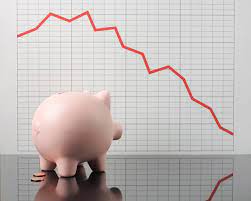On the other hand, pension managers have more power over how the funds are invested. However, long gone are the days when the vast majority of investors could rely on a steady income stream from a defined-benefit pension after they had completed their working life. If the market makes the wrong move at the wrong moment, it might mean the loss of years' worth of funds that have been worked very hard for. When it comes to investing with a long-term horizon, exercising some degree of caution may be good. Those who have prepared themselves for the next bear market before it occurs will be better positioned to weather the storm of a market decline and continue living their present standard of living.
Maintain the Right Portfolio Mix
Diversifying your holdings in a financial portfolio is the single most significant step you can take to reduce risk. Some investors assume they are in an excellent financial position if their funds are invested in a mutual fund. The situation is not nearly as straightforward as that, however. Every investor should use both primary forms of diversity in their portfolio. The first is the proper distribution of assets. This is the total value of the many assets you have in your possession, such as stocks, bonds, or cash equivalents like money market funds.
Because of this, it is essential to engage with a financial adviser to identify the asset allocation that is most appropriate for your age as well as the goals that you have for your investments. Because various asset categories can experience growth or fall at different rates over time, it is important to rebalance your account regularly to maintain a consistent asset allocation.
Diversification Helps
Having a portfolio that includes bond funds may help balance out volatile market effects. Having a proper quantity of stock funds and investments in real estate and commodities may assist in maintaining the principal while also providing a counterweight to the effects of inflation. Diversification across asset classes is the term used to describe this practice. It is impossible to predict which kind of investment will do the best in any particular year.

The second kind of diversification takes place inside each asset group. If equities make up sixty per cent of your portfolio, you should try to find a good equilibrium between large-cap and small-cap companies and between growth and value funds. Most financial counsellors also recommend having at least some exposure to overseas funds. This helps to mitigate the impact of adverse economic conditions in the United States. Remember that not all ties are created equal, and some are stronger than others. For instance, the stock market's success is more closely associated with low-grade debt, sometimes known as junk bonds, than it is with high-grade debt, such as government bonds.
Have Some Cash on Hand
Those already retired have the challenge of maintaining a precarious life equilibrium. Most financial advisors advise their clients to keep at least part of their equities in their portfolios to hedge against the risk of outliving their assets. However, older investors need to exercise more caution with their money since they do not have the same lengthy time horizon as younger investors. After you retire, you should find that most of your costs can remain pretty consistent. On the other hand, a significant expenditure may show up out of the blue at times. When something like this occurs, you won't be able to compensate for it by working additional hours if you're retired. Because of these costs, you will have to take money out of your savings to cover them. When the value of your assets has temporarily decreased due to current market circumstances, the last thing you want to do is pull money out of them.
As the moment of retirement money draws nearer, the portfolios held inside retirement accounts have to become increasingly conservative. The situation is not nearly as straightforward as that, however. Every investor should use both primary forms of diversity in their portfolio. Younger savers may afford the higher risk and have more aggressive holdings. Those getting closer to retirement age may consider shifting their investments towards cash and fixed-income securities to protect their assets and create income.

Be Disciplined About Withdrawals
To put it another way, the more money you have stashed away, the more prepared you will be if there is a downturn in the market. This may seem like a no-brainer, but far too many retirees wind up overspending throughout their golden years, leading to ill-advised financial choices being made out of sheer desperation.

Ways to Protect Retirement Money from Market Volatility

Indiana Housing and Community Development Authority Lenders

Investing in International Stocks

What Exactly Is a Swap?

Ford's Financials

Don't Let Financial Worries Ruin Your Marriage

How to Calculate Interest on a Loan

Moving to New Mexico: Things to Know

Best Reasons to Choose a Real Estate Agent Over

FHA Requirements for Down Payments

What Is a Community College: Discuss Briefly
